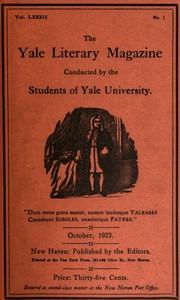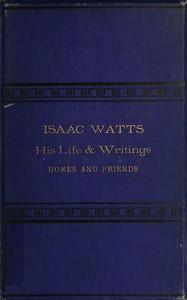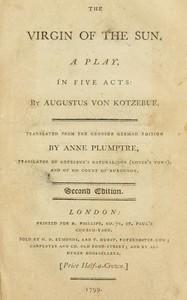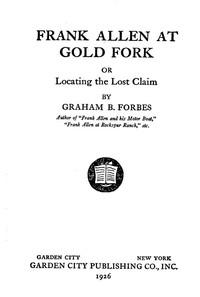|
|
Read this ebook for free! No credit card needed, absolutely nothing to pay.Words: 25018 in 7 pages
This is an ebook sharing website. You can read the uploaded ebooks for free here. No credit cards needed, nothing to pay. If you want to own a digital copy of the ebook, or want to read offline with your favorite ebook-reader, then you can choose to buy and download the ebook.

: The Yale Literary Magazine (Vol. LXXXIX No. 1 1923) by Various - Yale University Periodicals; College students' writings American Connecticut New Haven Periodicals@FreeBooksThu 08 Jun, 2023 The Yale Literary Magazine WALTER EDWARDS HOUGHTON, JR. LAIRD SHIELDS GOLDSBOROUGH DAVID GILLIS CARTER MORRIS TYLER NORMAN REGINALD JAFFRAY GEORGE W. P. HEFFELFINGER WALTER CRAFTS It would be difficult for even the most blindly ardent supporter of Yale to deny that the traditional four-year course for the degree of Bachelor of Arts no longer remains intact. There are probably fewer who realize that an ever increasing number are receiving that degree after completing a course that has had little or no relation to the field of learning to which, by its very title, it is closely related. Disintegration of the long established College curriculum has been going on ever since the war. It began with the introduction of the old "Select Course" of the Scientific School into the Academic curriculum under the imposing title of Bachelor of Philosophy. This innovation was followed shortly by the institution of the Common Freshman Year. Furthermore, if a student now intends to become a lawyer, he may devote an entire year to the study of law--and yet graduate as a Bachelor of Arts. Likewise, if an undergraduate desires to devote his life to the practice of medicine, he may start as early as Sophomore year, spending most of his time in the laboratories on Prospect Hill scrutinizing the hidden mechanism of feline organs--and still graduate as a Bachelor of Arts. In other words, assuming that the Freshman year is not very different from what it was in ante-bellum days, which is not the case, one-third of every class in Yale College is now graduated as B.A. men without more than a three years' "exposure" to the subjects which, in the eyes of the world, are customarily associated with that educational label. The reason for this state of affairs may be fairly stated in a single word--vocationalism. This utilitarian mania for taking the short-cut to one's life-work has been in recent years the ideal of a large portion of American college men, and has left its mark on almost every educational institution in this country, by forcing them to change their curricula to meet the demand. Harvard long ago yielded to the pressure of vocational demands in the matter of time, permitting graduation in three years. It was not long after that Columbia took still more drastic action by allowing admission to her graduate schools at the end of Junior Year. In so doing these institutions were unconsciously practicing the methods of the Correspondence Schools and the twenty-lessons-in-your-home concerns whose business it is to supply the needs of those who seek the short road to the payroll. The liberal colleges endeavoring to provide such short-cuts by making inroads on their liberal curricula are untrue to their genius and merely challenge impossible competition. It may be argued that this desire for specialization at the earliest possible moment was the natural result of the ever increasing complexity of modern life and the bewildering ramifications of present-day knowledge which forced the bulk of undergraduates to accept isolation in a single subject. This may be quite true, yet there remains the question of whether or not it is the place of the college, and in particular Yale College, to offer that opportunity even in part. The recognized place for specialization is the graduate school. The graduate student works presumably in a special atmosphere created by the common labors of a common group for a common end; the end being a particular degree desired because it has come to signify that the bearer of such a symbol has mastered the details of a recognized branch of learning. A graduate school is the most suitable medium for accomplishing the task in hand. It is the only reason we have post-graduate schools at all. The existing situation in the college is exactly the reverse. Those who are working for the B.A. degree and nothing else are carrying on side by side with what are in reality pre-medical students and first-year lawyers. Out of this have sprung two separate points of view on the same campus. On the one hand there is a group which pursues its studies with the realization that upon the complete mastery of every detail depends in a large measure the success or failure of its life-work. On the other, there remain those who are still searching in their work for that particular field which to them will seem to be the one to which they wish to devote their future time and energy. The result is a repetition of the old story of the house divided against itself. It is just this condition, we believe, that has led to such restless, groping questionings as, "What is Yale for?" The definition of a university as being one body of which there are many members admirably illustrates the point. For the college to-day is in the anomalous position of attempting to perform the duties of two members where it formerly functioned as one. Such a state of affairs is not conducive to the health of any organization whatever. The solution in the minds of many seems to lie in the abolishment of the old college course, following the law of the survival of the fittest. This issue of our present afflictions we believe would be a regretable blunder. There should always be a place for the study of the so-called liberal arts; for the contemplation of "all the best that has been thought and said and done in the world". Without such a background many a man cannot do his best work. What place is better fitted to continue this undertaking than Yale, established in this spirit, as attested by the words of the founder, "I give these books for the founding of a college"? Professor Mather in a recent address summed up the ideal of the college in these glowing terms: "The college does its work alongside a dozen other equally worthy educational institutions, mostly vocational. It does not compete with them; it directly supplements them and incidentally aids them. It has its own aims, which are not immediately practical, vocational, or material. "I should like to see inscribed over our college portals the following inscription: Free books android app tbrJar TBR JAR Read Free books online gutenberg More posts by @FreeBooks
: Isaac Watts; his life and writings his homes and friends by Hood Edwin Paxton - Watts Isaac 1674-1748@FreeBooksThu 08 Jun, 2023

: The virgin of the sun by Kotzebue August Von Plumptre Anne Translator - Tragedies; German drama Translations into English@FreeBooksThu 08 Jun, 2023
|
Terms of Use Stock Market News! © gutenberg.org.in2025 All Rights reserved.






